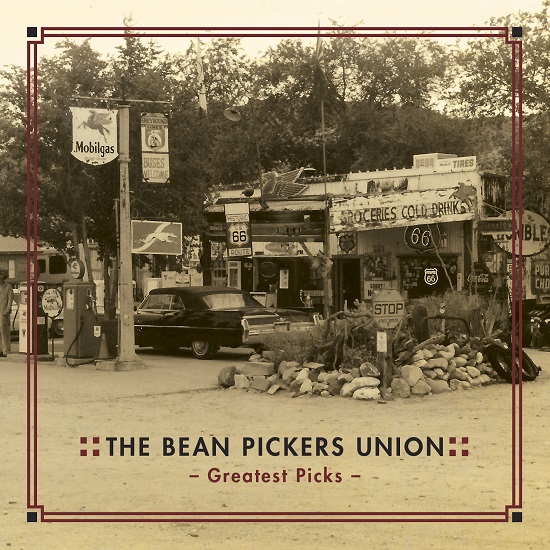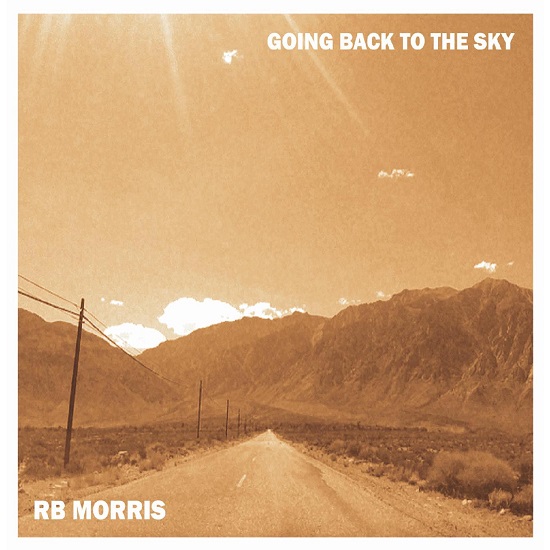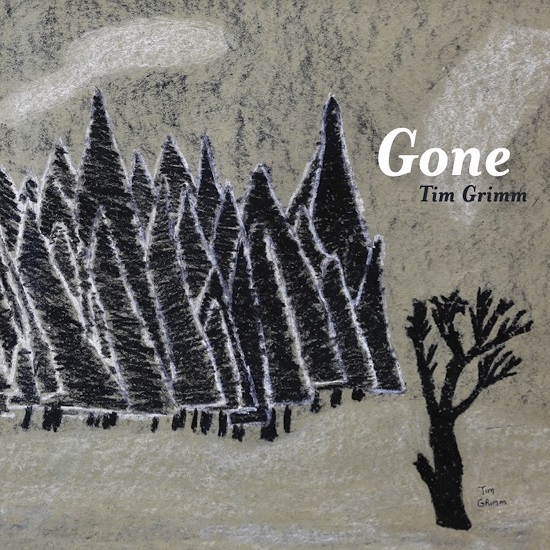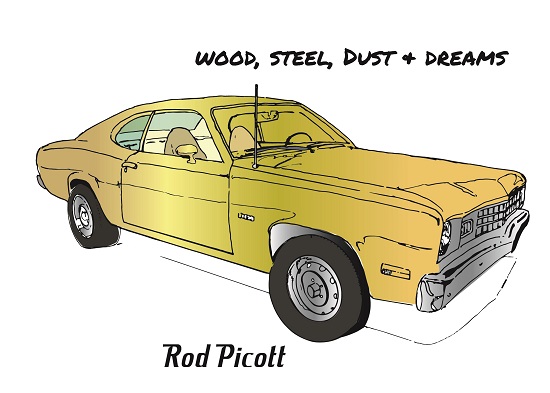
We’ve seen artists cope in many different ways with the pressures of the pandemic and lockdown; here’s another one. Chuck Melchin has already done the long-distance collaboration thing with Michael Spaly of Green Monroe as the Los Brujos project in 2019, so now he’s pulled together another project. It’s a Bean Pickers Union retrospective, pulling songs from the albums “Potlatch” (2007), “Better the Devil” (2012), “Caterwaul” (2017) and “Archaeology” (2019), As an added bonus, there are four unreleased bonus tracks. With a total of eighteen songs, it’s into double-album territory; fortunately there’s so much great material to choose from over the fourteen-year period that the album has a very cohesive feel that retrospectives often lack.
Describe the album in one word? Varied; there’s a long list of players and an even longer list of instruments used. The arrangements and stylings cover most of the Americana spectrum and a bit more besides; “Independence Day” is a full-on rock band arrangement with over-driven guitars and keyboards, hinting at Bruce and the E Street Band musically and even lyrically with a story of cars, girls, beer and marriage in a small American town. Chuck Melchin is a songwriter who knows how to tell a story in a 3-minute song and has a sure touch with his subjects, picking out uncommon themes that are still relatively easy to relate to.
A perfect example is “Philemon”, the story of a survivalist left stranded in the wilderness when Armageddon didn’t actually come. The minimalist backing sets the tone beautifully for the quiet desperation of a man left with only his bible, his ammunition and his shattered illusions. The menacing “Reaper”, starting with sampled surface noise, is a murder ballad telling the story of two friends who take different paths with tragic consequences and ends with violent death. “Warrior” is, on the surface, the tale of a Confederate soldier returning after the Civil War. The martial drums set the tone for the piece, while the intro hints at Al Wilson’s soul classic, “The Snake”. It’s a familiar tale, and a very angry one, of the wounded warrior spurned by society that still happens today with veterans from Vietnam, the Gulf and Afghanistan.
These offbeat tales are mixed with personal material and acute observations, leaving a very rounded and satisfying impression. It’s eighteen well-crafted songs covering a wide range of styles and themes and that’s more than enough to keep any serious music fan happy.
“Greatest Picks” is out now.
Here’s the video for “Warrior”:

“Going Back to the Sky” runs through a variety of musical styles covering the Americana genre fairly comprehensively but there are a couple of things that remain constant; the first is the theme of the album – it’s the wide open spaces of the centre of America and the people that inhabit this world. The other constant is RB Morris’s smooth, honeyed vocal delivery which feels almost effortless as he delivers his finely-crafted tales of life on the road on what he calls his ’dustbowl record’, speaking metaphorically.
If there’s a single song on the album that exemplifies RB Morris’s abilities to create a powerful song from a trivial-sounding event, it’s “Missouri River Hat Blowing Incident”; on a stop to commemorate his first crossing of the Missouri river, his hat is blown away by a gust of wind. After (eventually) chasing down the hat, the chance comes to look around with wonder at the epic scale of the prairie landscape. It’s a tip of the hat (pun intended) to Tony Joe White, not for the first time on the album, punctuated with Greg Horne’s moody pedal steel fills; it’s the perfect road song. “Montana Moon”, the longest song on the album, also nods in the direction of Tony Joe White, with sparse instrumentation depicting a freezing night on the road, literally and metaphorically running on fumes while using talk and memories of better times to survive the night.
Although at first sight the album looks quite hefty at fourteen tracks, three of those (“Prelude I”, “Somewhere’s West” and “Prelude II”) are tone poems clocking in at under a minute, either setting the scene or, in the case of “Somewhere’s West”, acting as a coda to “Montana Moon”. Interestingly, these are the work of the other musicians on the album, not RB Morris; the songs are the work of a gifted songwriter, but the instrumental settings certainly help them along.
Picking out individual songs isn’t easy, but here we go. “Under the Cigar Tree” is a bit of fun (that happens on the road as well) with mariachi rhythms and instrumentation, while the title song has a country-rock styling and perfect harmonies as it runs through a few tempo changes. It’s also ambivalent; it can mean going back to old haunts or leaving this life altogether.
“Going Back to the Sky” is an album that doesn’t give up all its secrets at once; it’s well worth listening a few times to capture some of the finer nuances of its lyrics and arrangements.
The album is out now on Singular Recordings (NTRB202001).
Here’s the video for “Red Sky”:

Tim Grimm released the single “Gone” at about the time of the American election last year as the third of a trilogy of singles about the Trump era. It could have been a very angry song, but Tim pitched it as a regretful look at the hypocrisy and viciousness given free rein by the contentious president number forty-five. Now it’s one of the pillars of an album that’s suffused with loss and leavened by a sense of rebirth and renewal.
The one exception to this mood is the (presumably) autobiographical “Cadillac Hearse” which rattles along in the style of vintage Johnny Cash with acoustic guitar and mandolin fills and walking bass and tells an uplifting coming of age story set in rural community in America in the sixties where the hearse doubles up as an ambulance. It’s the bit of rollicking fun that throws the rest of the album into a stark contrast.
The album opens and closes with a full arrangement and a stripped-back version of the song “A Dream”, which establishes and then reinforces the theme of the album. “A Dream” is a poignant, elegiac story of loss, linked to the song “Laurel Pearl” by the lyrical reference to ‘the girl with the funny name’. “Laurel Pearl” moves on from a dream evocation of loss to a genuine story of a life ended too soon. This isn’t the only link between songs on the album; “Joseph Cross”, the story of the death of a Native American man with an incredible history, was written by Eric Taylor, one of the three songwriters mentioned in “Dreaming of King Lear”, who died during the pandemic.
The other two songwriters Tim pays tribute to in “Dreaming of King Lear” are Michael Smith and David Olney (who quoted the ‘blasted heath’ speech from “King Lear” on his final album “Whispers and Sighs”). The opening line of the song also echoes the opening of Jackson Browne’s “Before the Deluge”. “Laurel Pearl” is the heartbreaking story of the death of a child, which feels strongly linked to “A Dream”. The message isn’t entirely sombre; the line ‘you’re part of every living thing’ hints at renewal and the happy memories live on. The sense of peace and renewal reverberating from the previous song “25 Trees” (where the tree planting represents things that will carry on after us, while books on a shelf represent a history that has already endured) is strengthened. And there’s the obvious link between trees and paper.
“Cadillac Hearse” aside, “Gone” is a very gentle album with delicate folk stylings that allow the lyrics to shine through and the themes of renewal and moving on are enhanced by having the next generation, Connor and Jackson (Tim’s sons), contributing to the album. It was never part of Tim Grimm’s plan to release an album in 2021, but “Gone” is timely. There’s regret and a bit of anger for the events of 2020, but also a calm realisation that we must move on and create our future. That’s a message I’ll happily endorse.
“Gone” is released in Europe on Friday September 10th.
Here’s the video from “Dreaming of King Lear”:

It’s difficult to review a Rod Picott album without mentioning Raymond Carver. There we go, that’s out of the way now, we don’t have to go back to that, valid as it is. “Wood, Steel, Dust + Dreams” is in the category of ‘Great idea; will it actually work?’ (spoiler alert – it will). The great idea was to take the twenty-five songs that Rod had co-written with childhood buddy and long-time collaborator Slaid Cleaves and rework them as a record of their collaboration. And there’s another interesting idea; the two-disc collection will only be available on CD. No, downloads, no streaming; you buy the album directly from Rod and no-one else takes a slice of it. Or, even better, you could go out and catch him on his UK tour (details below) and put some money in his hand personally in exchange for two CDs. It’s a nice way to get your music fix.
The title of the album sums things up neatly (although ‘rust’ could have featured as well). This album is packed with American blue-collar songs; we’re not taking Manhattan or Berlin, we’re dealing with people doing back-breaking manual labour in the rust belt and busting out at the weekend, drinking, racing cars or gambling and you can feel the authenticity running through every song. Running to twenty-five songs over two CDs, it’s a lot of songs. As our Northern reporter, Steve Jenner, used to say about “Sandinista”, you need a packed lunch for that one. There’s no filler; they’re all great songs and the list of musicians on the album is very impressive – Will Kimbrough, Matt Mauch, Lex Price and Neilson Hubbard are all on board, with Hubbard producing and there’s even a guest harmony from Slaid Cleaves. The production is very light touch, creating ambient soundscapes that pull the attention to the songs and Rod’s ‘groaning wound of a voice’ (his own words) and the raw power of the songs.
It’s subjective and a bit tricky to pick out favourites, but here are a few of my personal highlights. “Rust Belt Fields” tells the story the America sold when corporations discovered cheaper labour in Mexico and China and the impact it had on the workers and towns left marooned as the jobs evaporated; it’s despair and the knowledge that there’s no recognition for hard work. Two songs sitting side by side on CD Two are perfect demonstrations of the power and subtlety of the songwriting; “Drunken Barber’s Hand” is a menacing view of a malign force guiding the world, while “Primer Gray” is a perfect example of a song working on two levels. It’s a straightforward story about someone escaping from the grind by racing his car at the weekend. All the attention is paid to the engine and the body work and paint job is irrelevant because it doesn’t make the car faster. On another level, it’s about the music business (and humanity in general); all the glitz in the world can’t hide a hollow centre.
If you want a masterclass in songwriting and delivery, you don’t need to go any further than “Wood, Steel, Dust + Dreams”. Simple stories about real people delivered with the minimum of fuss and maximum of heart.
“Wood, Steel, Dust + Dreams” is out now on Welding Rod Records.


